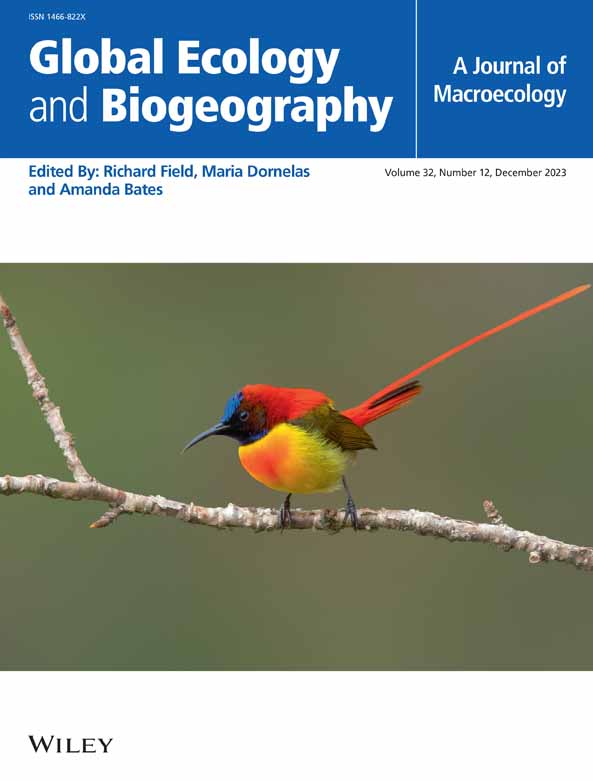Warming Enhances the Effects of Acidification on Aquatic Biota: A Global Meta-Analysis
Abstract
Aim
Global elevated atmosphere CO2 concentration-induced acidification poses a great threat to aquatic organisms worldwide. However, a comprehensive understanding of the response variability to acidification is still lacking, especially in the context of concurrent global warming. Addressing the response patterns of aquatic biota to acidification under the context of warming can facilitate the identification and prediction of probable consequences of global climate change.
Location
Global.
Time Period
1996–2024.
Major Taxa Studied
Aquatic biota.
Methods
We performed a meta-analysis by synthesising 221 studies containing 3669 observations to summarise the effects of CO2 on multiple aquatic biota, including primary producers, consumers, and decomposers. We further examined the effects of different ecosystems, experimental venue, CO2 concentration, and ambient experimental temperature on the response magnitude.
Results
Acidification had significant positive effect on primary producers and decomposers, yet significant negative effect on consumers. We found that invertebrates were the most negatively affected of all organisms, and the marine ecosystems are suffering more severity of acidification than freshwater ecosystems. We further found that the response magnitude showed a significant dose effect, indicating that reducing greenhouse gas emissions would minimise the impact of acidification. In addition, we found that higher temperatures enhanced the sensitivity of primary producers to acidification, suggesting that global climate warming may interact with acidification in a synergistic way.
Main Conclusions
Our results showed that distinct trophic levels showed significant differences in the response direction and magnitude. Specifically, the consumer is generally the most sensitive trophic level that is negatively affected by acidification. We emphasise that the simultaneous exposure of primary producers to anthropogenic stressors associated with acidification and warming is expected to produce interactions that may potentially reinforce the negative consequences, which is key to predicting and mitigating the acidification effect under future climate change scenarios.


 求助内容:
求助内容: 应助结果提醒方式:
应助结果提醒方式:


